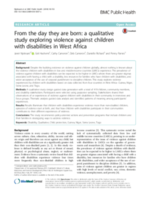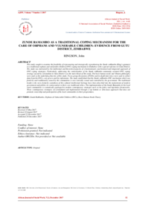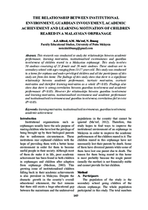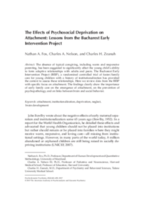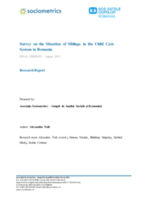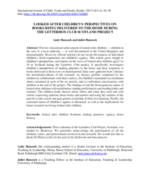From the day they are born: a qualitative study exploring violence against children with disabilities in West Africa
This study explores violence experienced by children with disabilities based on data collected from four countries in West Africa- Guinea, Niger, Sierra Leone, and Togo.

